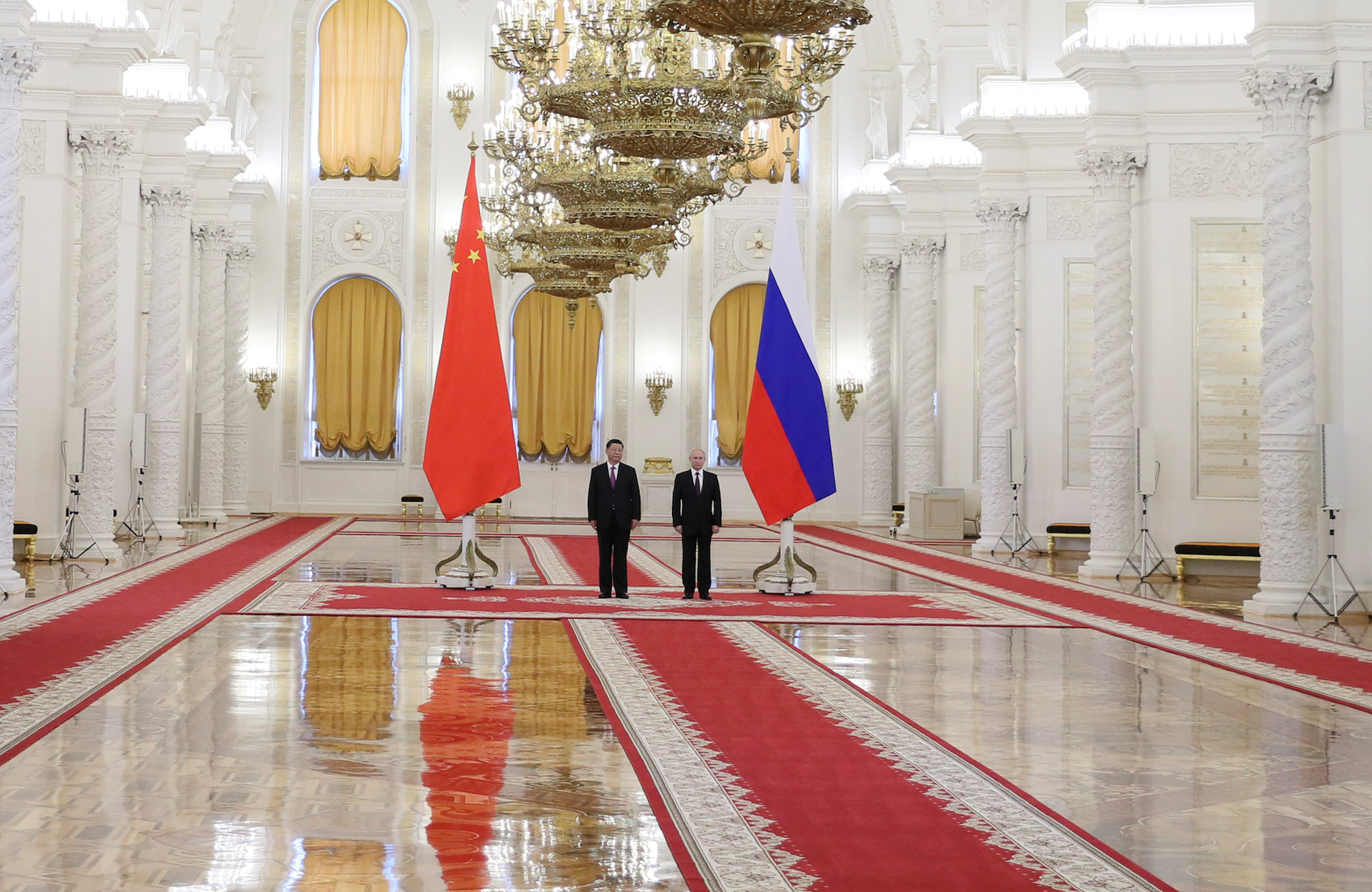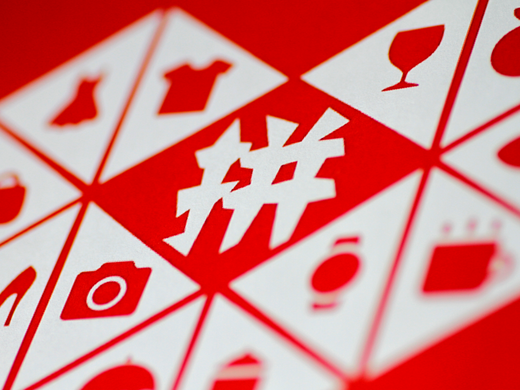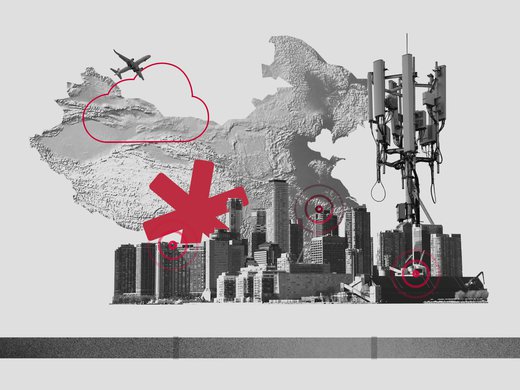Each morning, the party-state propaganda department for the People’s Republic of China issues instructions and requirements to all media on how the day’s news should be reported. These rules particularly apply to any news defined as important, sensitive or relevant to forging consensus and maintaining social stability. For breaking news, media are asked to follow the three “authoritative” state media: the People’s Daily, Xinhua News Agency and China Central Television (CCTV). In short, the party-state decides what kind of information and news China’s 1.4 billion people can watch, hear or read.
Ukraine at war has been a case in point. A leaked government memo from February 22, two days before the invasion began, states Beijing’s position: “From now on, reports and comments that are not in favor of Russia and pro-Western will not be sent….Use only hashtags by the People’s Daily, Xinhua News Agency, and CCTV.”
The internal directive’s accidental leak through Shimian, a Weibo (China’s Twitter-like social media platform) account belonging to an international video news outlet affiliated with The Beijing News, appears to have been legitimate. But whatever the provenance of those instructions, it is a fact that China’s internet, news reports and social media have been brimming with pro-Russian, anti-Western disinformation since the war began. Media, diplomats, even spokespeople of the Ministry of Foreign Affairs: all have conveyed that China blames the United States and the North Atlantic Treaty Organization (NATO) for the war. They have likewise copied and pasted disinformation circulated by Russia about Ukraine, including that Ukrainian President Volodymyr Zelenskyy had fled Kyiv at the beginning of the invasion, that Ukraine has been using civilians as human shields, and that Ukraine is governed by Nazis.
Even as Beijing has promoted the Kremlin’s narrative on the war, it has censored news and social media content that denounces the invasion and supports Ukraine’s defence against Russian aggression.
Even as Beijing has promoted the Kremlin’s narrative on the war, it has censored news and social media content that denounces the invasion and supports Ukraine’s defence against Russian aggression. The government has censored celebrities who’ve advocated for peace, curtailed anti-war voices, and censored five history professors from China’s top universities who signed an open letter condemning the invasion. Indeed, so widespread was disinformation on China’s internet that a bewildered Weibo user lamented that “if I only browsed Weibo, I would have believed that it was the United States that had invaded Ukraine.”
With the Ukraine war in its second month, China is subtly adjusting its position and trying to determine whether it can or should play the role of intermediary to help stop the war. Beijing has begun to speak out more on the principle of respecting state sovereignty and territorial integrity, while still not distancing itself from Russia.
Accordingly, China’s propaganda has more recently begun to downplay the heated reports on the topic of the Russia-Ukraine war. It began to remove both pro-Ukraine and extreme pro-Russia voices while continuing to censor negative comments and news about China-Russia relations.
Officially, the Chinese government initially took an ambivalent, neutral position, by declining to call Russia’s “special military operation” an invasion, although not officially supporting it. This echoed its so-called “straddle” position after Russia’s illegal annexation of Crimea in 2014. However, the strong pro-Russian and anti-Western sentiment and propaganda on its firmly controlled internet clearly indicate China’s thinking and calculations about the war. Beijing has chosen a side. At a meeting with his Russian counterpart on March 30, China’s foreign minister emphasized that both countries are “more determined” to boost bilateral ties and reportedly described Western sanctions on Russia as illegal and counterproductive.
This should not come as a surprise, given China’s recent stances in international relations.
First, disinformation about the invasion of Ukraine has helped foster the already-feverish nationalism that has long served Beijing’s goal of questioning the legitimacy of the US-dominated international order and Western political and human rights standards.
Chinese officials have long emphasized that years of NATO expansion pushed Russia to the brink. In this, Beijing clearly sees an echo of its own position that the United States and its allies fear China’s growing power. A cause that inflames anti-Western nationalism is deemed to benefit the ruling Chinese Community Party as it rallies public opinion and helps stabilize its ruling regime.
Through mounting US pressure on trade, tech, human rights and strategic competition (particularly last year’s Australia-United Kingdom-United States defence pact), China sees a US posture that is increasingly hardening. Thus, it deems closer relations with Russia to be a strategic counter.
China may also expect the Ukraine war to draw attention and resources to Europe. The ensuing entanglement will weaken America, according to this line of thinking, providing China with strategic space and time to solidify its place in a new international order.
In addition, disinformation about Russia’s invasion of Ukraine may help justify China’s possible use of force to achieve unification with Taiwan in the future. A war on information could help China grow capacity to disseminate messages globally and challenge international public opinion dominated by the United States and the West. In the case of Taiwan, it can help propagate China’s long-standing position, which insists that Taiwan is a province of China, and that any Western support for Taiwan is meddling in China’s internal affairs.
Strategically, probably the biggest potential benefit to China is that it can observe how comprehensive the international sanctions on Russia will be, and whether Russia can withstand them. As a popular saying circulating on China’s internet goes, the sanctions are a “stress test” for China’s capability to survive any future sanctions imposed by the United States and the West, should China move to seize Taiwan by force.
However, China’s attempt to straddle positions on the war, tacitly supporting Russia while avoiding economic consequences, is also risky.
To begin, China’s support for Russia, even if it is tacit, flies in the face of its long-held core foreign policy principle of respecting the sovereignty and territorial integrity of all countries.
Second, in a country where media and information are tightly controlled, it’s relatively easy to disseminate disinformation to ignite strong nationalist sentiment to support great-power competition. But Beijing’s alternative narrative exacerbates China’s already tense relations with the United States and Europe and stands to discredit China globally. As a popular online Chinese anti-war quote goes, “The grand narrative of nationalism and great-power chauvinism has squeezed out their last bit of humanity.”
Furthermore, possible sanctions by the West would inflict more pain on China’s economy, already strained due to its strict zero-COVID policy and lockdowns.
The unprecedented capital exodus from China and sharp sell-off of China concepts stocks listed on several major stock exchanges around the world since Russian’s invasion of Ukraine are a wake-up call for Beijing. They will further worry Chinese economists concerned about a slowing economy and a loss of faith in Chinese investments by global investors.
Geopolitical calculation lies behind China’s tacit support of Russia’s invasion of Ukraine and reluctance to use its influence to stop the war. But the shifting fortunes of war and possible setbacks due to sanctions may cause Beijing to think twice. Mediation to stop the war would provide China a good opportunity to revamp its economic and political relations with the West, while supporting the friendly external environment it needs most, for stability and robust economic growth.



